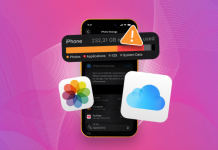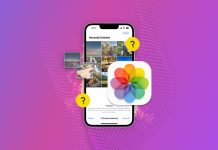Table of Contents
Setting the Stage
It seems that the whole world is awaiting with bated breath for Tuesday’s Verizon announcement to roll around. Assumedly, this press conference is all about the iPhone making its debut on Big Red.
At this point, it seems like a fairly certain thing. Here is The Wall Street Journal’s Shayndi Raice:
The iPhone is finally coming to Verizon Wireless.
The largest U.S. wireless carrier will say Tuesday that Apple Inc.’s iPhone will be available to its subscribers, according to a person familiar with the matter.
The company is making the announcement at an event at New York’s Lincoln Center.
Now, the WSJ is a major publication, and one with major ties to Apple. The WSJ has published several big Apple stories over the years, including Steve Jobs’ liver transplant. Most people — myself included — feel like the Wall Street Journal has someone inside the company, and that the publication doesn’t publish this type of thing without serious evidence.
So, why is Verizon holding an iPhone event in NYC, while Apple has a great campus in California for this type of thing? Daring Fireball’s John Gruber nails it:
Apple is fully aware that when they say “We’re having an event next week” that people expect big news and a new product. If they were hosting this event, speculation would be rampant that it would involve a new iPad and maybe an iPhone 5, in addition to the expected Verizon deal. There is no new Apple product, though. We nerds know that a CDMA iPhone 4 is a different device than the GSM iPhone 4, but from a consumer perspective, it’s the same phone but just works on a different carrier. What would Apple show? What would there be to demo?
So, New York City. Verizon. iPhone 4. Maybe even a Steve Jobs sighting. Let’s assume this is the real deal. So what does it mean? (Oh my God … it’s so intense!)
What it Means for Verizon and AT&T
 Many pundits are claiming that this release is the death knell for AT&T. While I’m sure that many users will switch carriers, contracts will keep many customers right where they are, at least for a while. For corporate customers, this is especially true.
Many pundits are claiming that this release is the death knell for AT&T. While I’m sure that many users will switch carriers, contracts will keep many customers right where they are, at least for a while. For corporate customers, this is especially true.
I think long-term, iPhone usage will be pretty evenly split between Verizon and AT&T. In some areas, Verizon’s coverage is far better than AT&T’s, like here in Memphis. However, in many parts of the country, AT&T’s coverage is superior. These factors will all help even the playing field between the two companies over the next few years.
For Verizon, there is one possible downside to this. The carrier’s network is widely believed to be superior to AT&T’s, but if Big Red’s infrastructure can’t keep up with the massive amounts of data iPhone users are prone to using, they may not be able to maintain their superiority. Longtime AT&T customers will attest to the fact that the company’s network has declined as the iPhone has grown in popularity. Verizon has to do better than AT&T did if Big Red wants to keep from becoming a laughingstock like AT&T has over the last few years.
What it Means for Google and RIM
 I think the biggest iPhone growth won’t come from AT&T customers, but from existing Verizon customers currently using a Blackberry or Android device.
I think the biggest iPhone growth won’t come from AT&T customers, but from existing Verizon customers currently using a Blackberry or Android device.
Historically, Verizon has been the stronghold of the Blackberry user. In the last couple of years, however, RIM has branched out, and Verizon has become the go-to carrier for the latest and greatest Android phones. RIM has the most to lose if its phones have to be sold next to the iPhone. It is already struggling next to phones like the Motorola Droid X and HTC Droid Incredible.
(By the way, a Verizon iPhone will also take sales away from the HP/Palm Pre Plus on Verizon, but I’m not sure that boat could be any more sunk.)
If Verizon offers a sweet deal for existing customers to switch to the iPhone, it will be a goldmine for everyone — except for RIM and Android manufacturers. I think there are a lot of customers on Verizon who are just there because they have to be, not because the carrier has the handset they really want.
What it Means for Apple
 Well, in short, its all good news for Apple. While the iPhone already has a commanding position in the smartphone market, expanding to another carrier should grow the install base pretty substantially. Which means more cash in Apple’s already bulging pocket.
Well, in short, its all good news for Apple. While the iPhone already has a commanding position in the smartphone market, expanding to another carrier should grow the install base pretty substantially. Which means more cash in Apple’s already bulging pocket.
That’s good for Apple’s bottom line, but it’s also good for Apple’s customers. It gives customers options, and helps Apple move their prized product away from the PR and customer-service disaster that is AT&T.
However, supporting two networks will be some work, without a doubt. The activation issues that Apple Store employees face now could become more complicated with a second carrier that has its own set of rules and own customer service issues.
What it Means for Me and You
Having more than one carrier with the iPhone should make plans more competitive, and will hopefully encourage the carriers to build out network coverage, improve customer service and be less crappy all the way around.
Even if those things don’t play out, options are good. I’m ready to see the iPhone at my local Verizon store.







